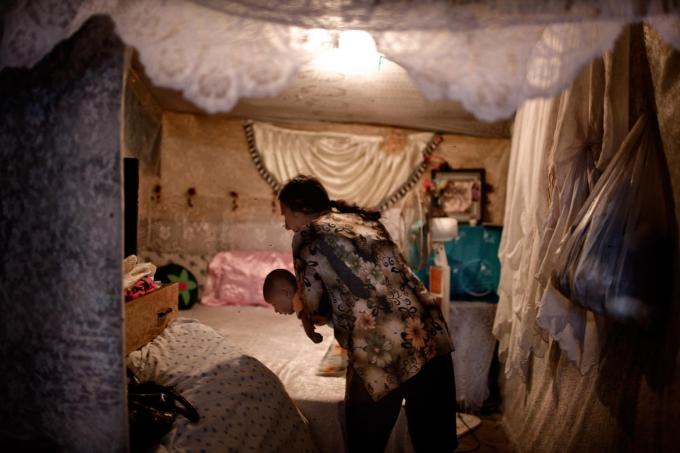Albania is one of the riskiest places to be born in Europe - Save the Children
Save the Children has published the 14th annual State of World’s Mothers Report. Every year around the world nearly 3 million babies die within the first month of life, most from preventable causes. More than 1 million babies die the day they are born – making the birth day the riskiest day for newborns and mothers. The Democratic Republic of the Congo (DRC) is the toughest place in the world to be a mother – and Finland the best – according to Save the Children’s State of the World’s Mothers report.

In Central and Eastern Europe, birth day risk is highest in Albania, Turkey and Romania. Albania has the highest first-day mortality rate of any country in the Balkan Peninsula. According to Save the Children’s 2013 State of the World’s Mothers report, Albanian newborns are 50% more likely to die on the day of birth than babies born in Croatia, Macedonia, Montenegro, Bosnia-Herzegovina and Serbia.
The world has made tremendous progress since 1990 in reducing mother and child deaths and Albania is no exception. The number of children under 5 who die worldwide each year has been reduced by over 40% from 12 million to 6.9 million. But less progress has been made for the children who are the most vulnerable of all – newborns.
Save the Children’s State of the World’s Mothers Report shines light on the most challenging issues facing mothers and children. This year’s report focuses on the critical first day of life of a newborn baby. It presents new research that digs deeper into the statistics and finds that the day a child is born is by far the most dangerous day in a child’s life.
The report includes a first-ever Birth Day Risk Index, which compares first-day death rates for 186 countries and finds that in most countries, children are at greatest risk on the day they are born. 18% of all under-5 deaths in Albania take place on the day a child is born and 50% take place within the first month of birth.
Worldwide more than 80 % of all deaths among newborn babies are caused by complications from preterm birth and during pregnancy or severe infections. In addition to inadequate care of the baby, another major cause of newborn deaths in developing countries, including Albania, is the poor health and nutritional status of mothers, especially during pregnancy, delivery and the early period after delivery.
The 2013 Mothers Index evaluates all countries against five indicators: Lifetime risk of maternal death, Under-5 mortality rate, expected years of formal schooling, gross national income per capita and participation of women in national government.
Albania ranks 81st on the Mother’s Index out of 176 countries. Albania ranks more highly on health-related indicators than its economic rank would imply. However Albania falls in the bottom 40% of countries on women's political status and the bottom 30% on completed years of formal schooling.
More specific findings on Albania are:
- Mothers in Albania face a 1 in 2,200 chance of dying during pregnancy or childbirth -- the 48th lowest risk in the world. Compare this to Greece, and Italy where the lifetime risk of maternal death is less than 1 in 20,000.
- At 14 child deaths per 1,000 live births -- or 1 in 70-- Albania ranks 65th worldwide on under-5 mortality.
- Although Albania has 1/12th the national wealth of the United States per capita yet has roughly the same lifetime risk of maternal death
Save the Children calls on world leaders to take national and international action to step up efforts to tackle newborn, child and maternal mortality through:
- Strengthening health systems so mothers have greater access to skilled birth attendants. They can provide lifesaving interventions to all mothers and children. In addition providing more funding for maternal, newborn and child health programs: more should be invested in frontline healthcare workers and community health workers to reach the most vulnerable mothers and babies.
- Fighting the underlying causes of newborn mortality, especially gender inequality and malnutrition. Helping mothers become strong and stable – physically, financially and socially – make their children stronger and more likely to survive and thrive.
- Investing in low-cost solutions that can dramatically reduce newborn mortality. Simple interventions and medication at birth can prevent and treat deadly infections. Exclusive breastfeeding should be encouraged. Such practices cost very little but can save hundreds of thousands of babies’ lives each year.
- Additionally, birth attendants should be trained and given proper support and supplies.
- Increasing commitments and funding to save the lives of mothers and newborns.
Learn more at: Surviving the First Day State of the World's Mothers 2013 Publication
17/05/2013
 Albania
Albania